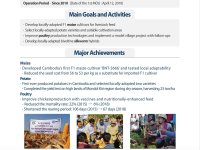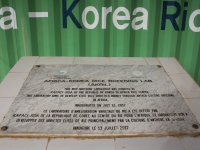Case Study
KOPIA – Customized cross-border farming technologies to address poverty and rural challenges

KOPIA (Korea Program for International Cooperation in Agricultural Technology) is an innovative development cooperation platform that facilitates agricultural partnerships among partners and donors, where agricultural technologies can be efficiently scaled up and effectively commercialized. KOPIA consists of three pillars: to develop locally-customized farming technologies; to carry out pilot projects to demonstrate practical effectiveness; and to involve other donors for scaling up.




